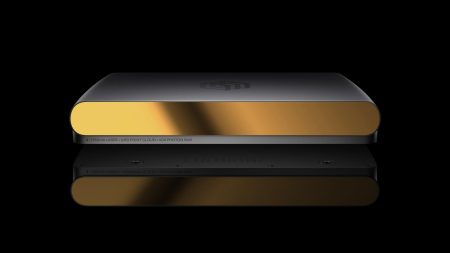This article catches up on some recent announcements for memory technologies (DRAM) from Winbond, Samsung and Micron as well as Toshiba’s entry into the 22TB nearline HDD market. Bigger and more performant memory technologies are needed to support growing AI workloads in data centers and at the edge and higher capacity HDDs are needed for secondary data storage of generated data.
Micron announced that it introduced a 16Gb DDR5 memory using its 1-beta process node technology. The device operates at performance up to 7,200 MT/s. The company says the new memory provides up to a 50% performance increase and a 33% improvement in performance per watt over the previous generation. The new 1β DDR5 DRAM product line offers current module densities in speeds ranging from 4,800 MT/s up to 7,200MT/s for use in data center and client applications.
Micron’s 1-beta technology will also be used in other memory products, including RDIMMs and MCRDIMMs using 16Gb, 24Gb and 32Gb DRAM die, LPDDR5X using 16Gb and 24Gb DRAM die, HBM3E and GDDR7.
Winbond announced a memory technology for edge AI computing applications, the customized ultra-bandwidth elements (CUBE). Winbond says that the, “CUBE enhances the performance of front-end 3D structures such as chip on wafer (CoW) and wafer on wafer (WoW), as well as back-end 2.5D/3D chip on Si-interposer on substrate and fan-out solutions.
Designed to meet the growing demands of cloud-based AI servers, it is compatible with memory density from 1-4GB and enhances bandwidth while reducing power consumption.” The figure below shows the structure of the CUBE technology.
Winbond says the CUBE’s key features are:
· Power efficiency: CUBE delivers exceptional power efficiency, consuming less than 1pJ/bit, ensuring extended operation and optimized energy usage.
· Superior performance: With bandwidth capabilities ranging from 64GB/s to 256GB/s per die, CUBE ensures accelerated performance that exceeds industry standards.
· Compact size: Offering a 1-8Gb/die based on the D20 specification now and D16 in 2025, CUBE accommodates smaller form factors. The introduction of through-silicon vias (TSVs) further enhances performance, improving signal integrity, power integrity, and heat dissipation if SoC on top die and CUBE on bottom die.
· Cost-effective solution:
1) High bandwidth: CUBE IO speed ranging up to 1GHz, and Legacy foundry process node such as 28nm/22nm SoC can use CUBE’s ultra-high bandwidth in 32GBs-256GB/s (HBM2), equal to 4-32pcs*LP4x16 bandwidth.
2) SoC die size reduction: SoC (top die without TSV) is stacked on CUBE (bottom die with TSV), its die size could be smaller if TSV area penalty is being removed. This will contribute back to the better cost advantage on Edge AI devices.
Winbond says that it is engaging with partner companies to establish a 3DCaaS (3D CUBE as a service) platform, which will leverage CUBE capabilities in product designs.
Samsung announced that it has developed a Low Power Compression Attached Memory Module (LPCAMM) form factor, which it expects to transform the DRAM market for PCs and laptops, and potentially even data centers. The 7.5 giga-bits-per-second (Gbps) LPCAMM has completed system verification through Intel’s platform.
According to Samsung, “Historically, PCs and laptops have conventionally used LPDDR DRAM or DDR-based So-DIMMs2. While LPDDR is compact, it’s permanently attached to the motherboard, making it challenging to replace during repairs or upgrades. On the other hand, So-DIMMs can be attached or detached easily but have limitations with performance and other physical features.
LPCAMM overcomes the shortcomings of both LPDDR and So-DIMMs, addressing the increased demand for more efficient yet compact detachable devices. The Samsung LPCAMM is shown below.
There may also be uses for this removable storage module in servers and data centers. The Samsung announcement included a quote from Dr. Dimitrio Ziakas, VP of Memory and IO Technology at Intel, “We’re excited to be a part of the new standard enabling the client PC ecosystem and pave the path for future adoption and innovation in boarder market segments.” Commercialization of this new memory module is planned for 2024.
Toshiba also recently announced its MG10F Series 22TB HDD using CMR (perpendicular recording without energy assisted magnetic recording or shingled magnetic recording) in a 10-disk, helium sealed design. With this product, Toshiba joins Western Digital and Seagate with 22TB and higher HDD offerings. This new Toshiba nearline HDD is shown below.
The MG10F has 10% more capacity than the prior generation Toshiba 20TB model. The product features a 7,200RPM performance, a 550TB per year working rating and a choice of SAS or SATA interfaces. Sample shipments with SAS and SATA interfaces will be available in the 4th quarter.
Micron announces DRAM memory devices using its 1-beta technology. Winbond announces its CUBE memory for AI applications. Samsung announces its detachable LPCAMM memory modules. Toshiba joins the 22TB HDD club.
Read the full article here









